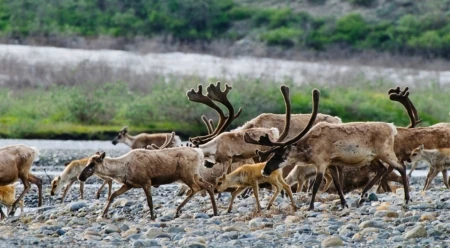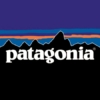The Fight to Protect the Arctic Refuge Has Just Begun
“Americans have voiced overwhelming support for protecting the Arctic Refuge, and the fight is far from over. If we destroy the Arctic Refuge today, we will never get that wild, unspoiled wilderness back.”
On December 20, Congress passed the tax bill that included a measure authorizing oil leasing in the Arctic National Wildlife Refuge, exposing this fragile and beautiful landscape to the devastation that inevitably comes with exploration and extraction. Tragically, there was no real public debate on the issue. It was snuck past the American people as a means to a political end, and most Americans still don’t know that this pristine landscape, first set aside a half-century ago by Republican President Dwight Eisenhower, is now at grave risk of being destroyed. The refuge is, perhaps, our wildest and most intact American ecosystem and home to polar bears, caribou, musk oxen and millions of migratory birds. It is revered by the Gwich’in people, who call it “the sacred place where life begins.” Protecting the Arctic Refuge represents many things to us: the pinnacle of a decades long campaign to save our public lands; a fight for basic human rights; and an effort to save our entire planet from the impacts of fossil fuel driven climate change.
For these reasons, we are more determined than ever to defend the Arctic National Wildlife Refuge. We stand with our partners and friends in this long effort, and the statements below represent and speak for many of the groups we work with. This is neither the beginning nor the end of the fight—but, it is a turning point, and a time for all Americans to wake up to the reality that, unless we push back hard, our most treasured places will be put on the chopping block.
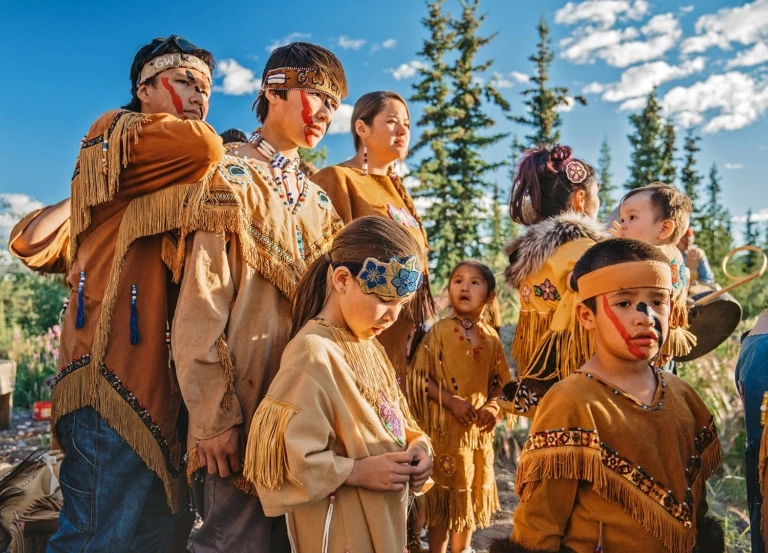
Young members of the Gwich’in Nation prepare for a traditional dance ceremony at the 14th Gwich’in Gathering in Arctic Village, Alaska. Photo: Kahlil Hudson
Bernadette Demientieff, executive director of the Gwich’in Steering Committee
“We’ve hit a whole new level of defense and this fight has just begun! We will rise up and protect the Arctic Refuge, the ‘Sacred Place Where Life Begins.’ We will not stop. We will not waiver. We will continue to protect our way of life, as we always have. Our identity is non-negotiable and our human rights inalienable.”
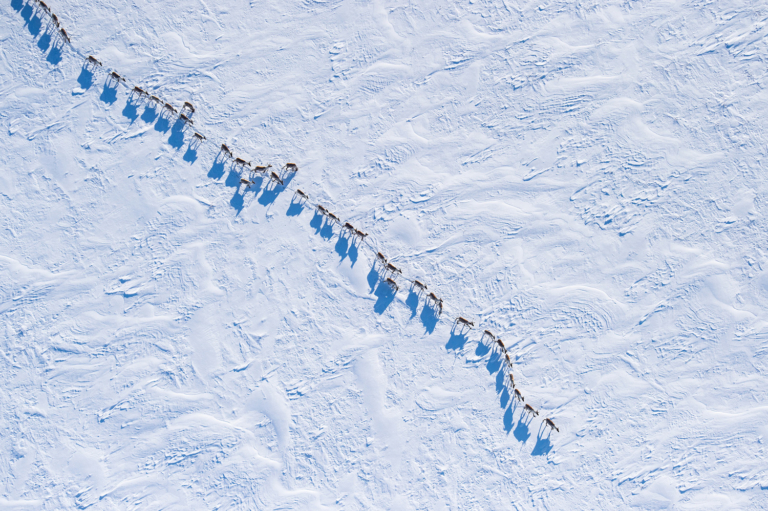
In a Gwich’in creation story, the original people of the Arctic used to be caribou. When they separated, the caribou kept a bit of the human heart and the human kept a bit of the caribou heart. They made an oath that the caribou would always take care of the Gwich’in as long as the Gwich’in would always take care of the caribou. Photo: Florian Schulz
Princess Daazhraii Johnson, Gwich’in writer, organizer and actress
“Passing of this highly unpopular tax bill that opens the Arctic Refuge to oil drilling is an assault upon indigenous human rights and sets a dangerous precedent for how we as humans will treat our remaining intact ecosystems on our planet. All of us must now stand to defend clean water, air, land—all the life sustaining elements of our Mother Earth. We continue to heed the call of ancestors and this land that has provided for the Gwich’in Nation for thousands of years and we recognize our fight has only just begun.”
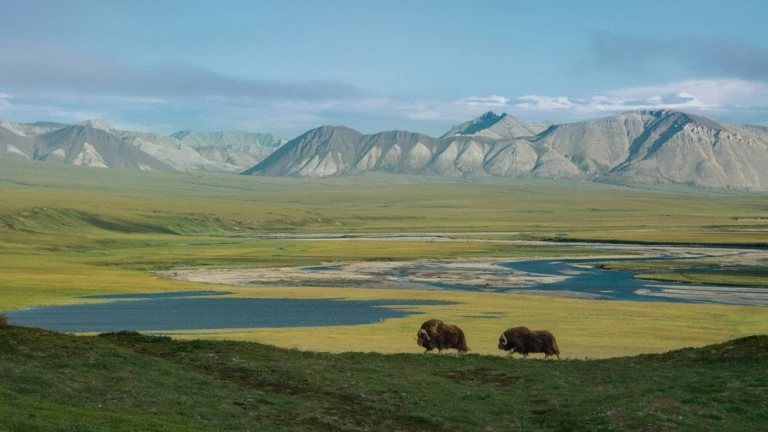
Musk oxen have been around since the Pleistocene era; along with caribou, they are the only hoofed animals that survived the end of that era (10,000 years ago). Today, they roam the open tundra of the Arctic Refuge in search of vegetation growing under or above the snow. Photo: Florian Schulz
Andy Moderow, Alaska Wilderness League, Alaska director
“President Trump’s allies in Congress just dishonored the past by voting to sell the Arctic National Wildlife Refuge to the highest bidder. If they succeed and oil development destroys one of America’s last wild areas, there is no doubt that history will judge them harshly. Our work today to protect this area just got more difficult, and we will be doubling down in the years ahead. We won’t stop until this truly wild place is protected for current and future generations alike—we know our lands and waters are worth it.”
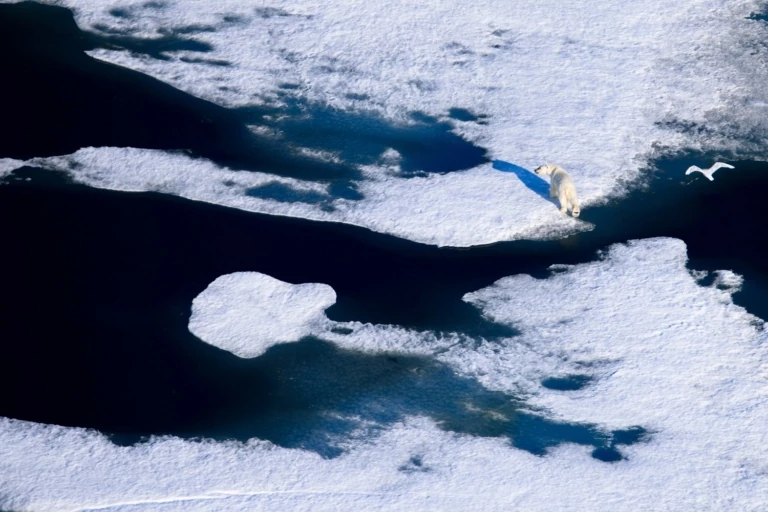
Polar bears are the only bear species to be considered marine mammals because they depend on the ocean for their food and habitat. They spend far more time at sea than on land. This polar bear is negotiating ice floes in the Beaufort Sea while hunting for seals. Photo: Florian Schulz
Mollie Foster, photographer and author of Hiking Alaska
“Last August I started a two-week backpacking and packrafting trip in the Arctic National Wildlife Refuge, with a visit to the expansive oil development in Prudhoe Bay. We saw a few birds, in the shadows of oil rigs. It felt empty, dirty, and void of emotion. The contrast between the sights there, compared to backpacking through the wild, untouched landscape in the Arctic Refuge, is something I can’t get out of my head. The refuge is filled with signs of life everywhere, every day we walked by dozens of caribou antlers sheds, bear scat, and species of birds. We paddled our packrafts as a wolf swam across the river in front of us, just upriver from a cow moose with her calves. We saw signs of life, but very little signs of human life (a few bush plans the whole trip). I’ve covered miles of backcountry in Alaska traveling to each corner of the state through my work as a journalist and photographer. The Arctic Refuge is one of the most pristine, untouched landscapes I’ve ever visited, and I will fight for it, so future generations can have the same experiences I was so lucky to witness.”
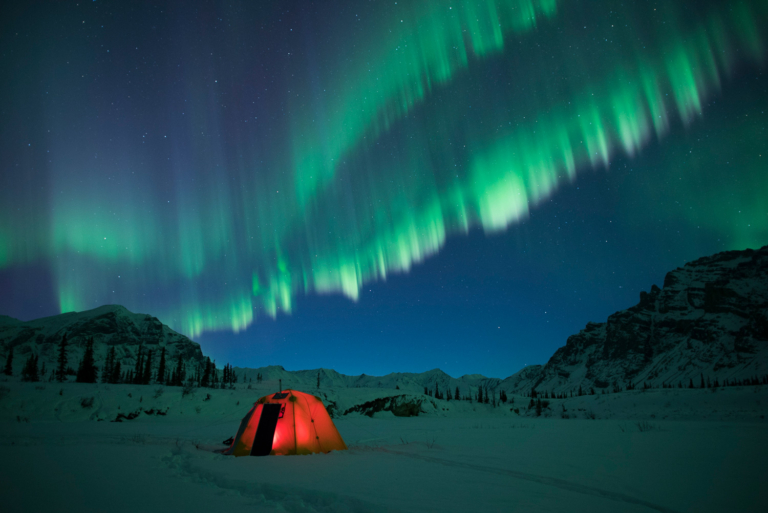
The Arctic Refuge offers unparalleled wilderness opportunities, including backpacking, camping, climbing and fishing. It has no phone service, cell phone coverage, campgrounds or ranger stations within its boundaries. Because of its remote nature and potentially extreme conditions, self-reliance is essential and the experience of true adventure is guaranteed. Photo: Florian Schulz
Alli Harvey, Our Wild America Alaska campaign representative, Sierra Club
“Wednesday was a dark day for me—the Republicans finally pushed through their horrible tax package which included drilling in the Arctic Refuge, and the sun barely rose up into the sky up here in Alaska. But today on the winter solstice I woke up more motivated than ever to fight back. Luckily, I know I’m not alone. A growing movement of people here in Alaska, led by the Gwich’in Nation, is committed to defending the refuge from the rampant greed and attack on human rights moved forward by this tax package. Where industry tries to go, we will be there, pushing back against drilling efforts that threaten the food security of the Gwich’in people, one of our country’s last great wild places, and our climate. This fight has only just begun.”
Thank you to Florian Schulz for sharing his amazing photography with us. To learn more about Florian and how he’s fighting to save the Arctic, check out our interview with him from 2016.
Thank you to Kahlil Hudson, director of The Refuge, a short film that tells the story of two Gwich’in women who are continuing the decades-long battle for their people’s survival—and the survival of the wild animals that so faithfully bring them life.
